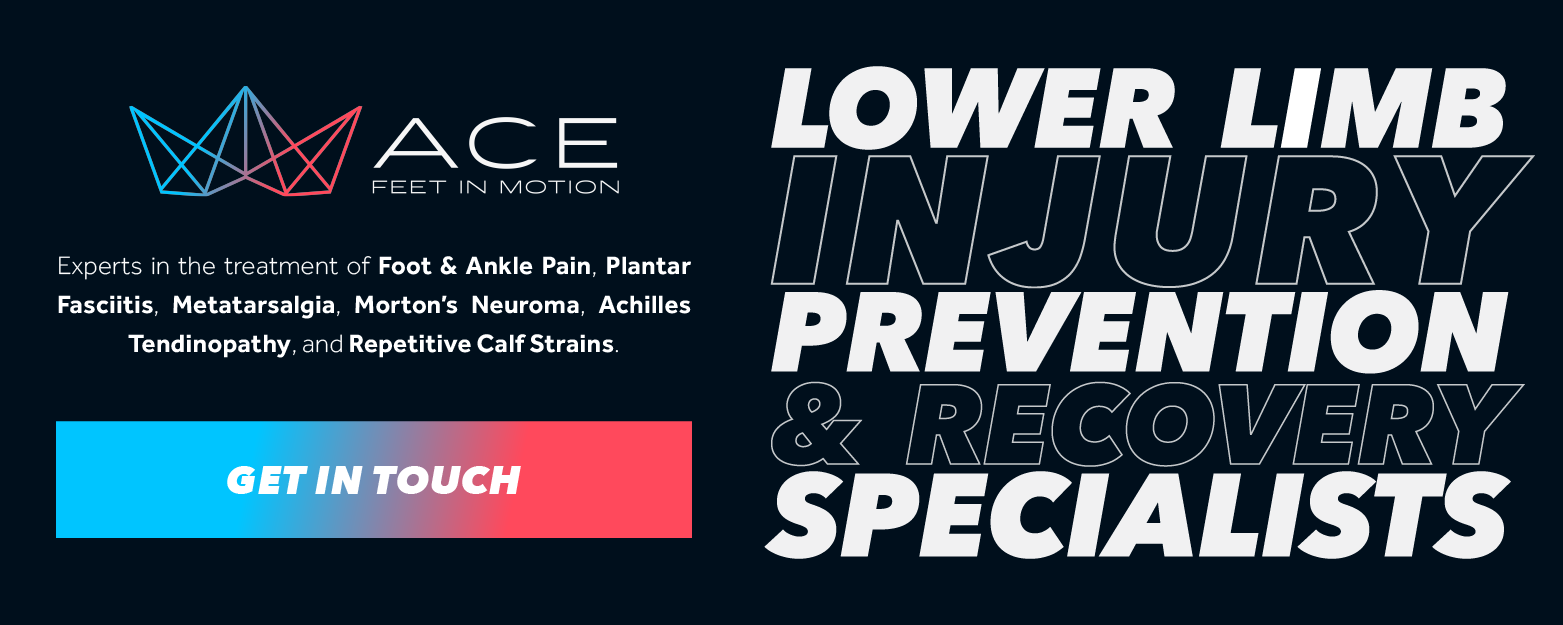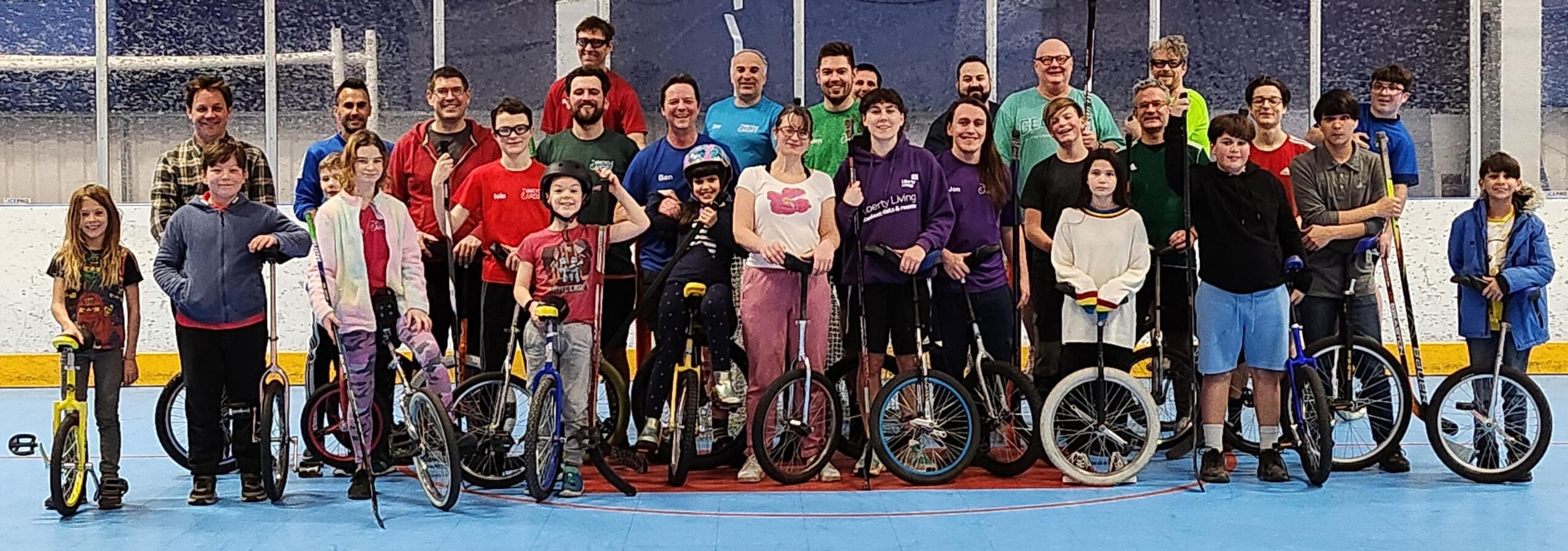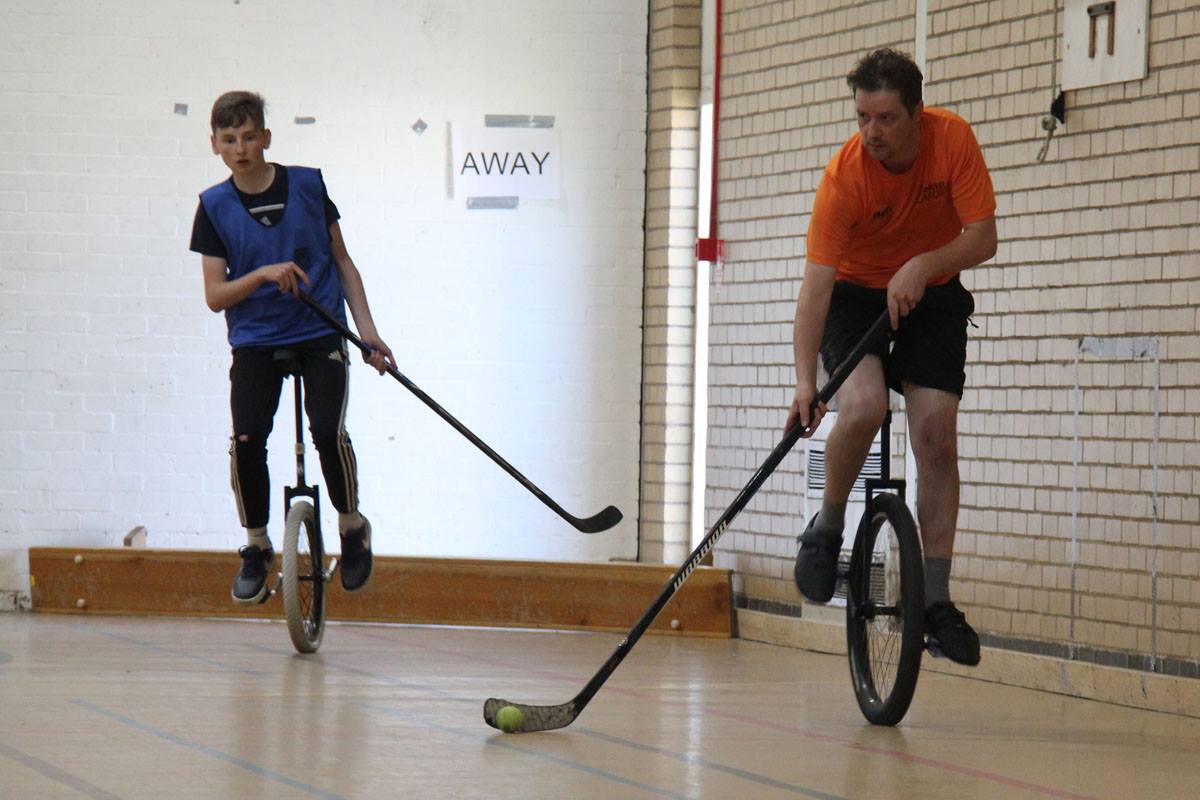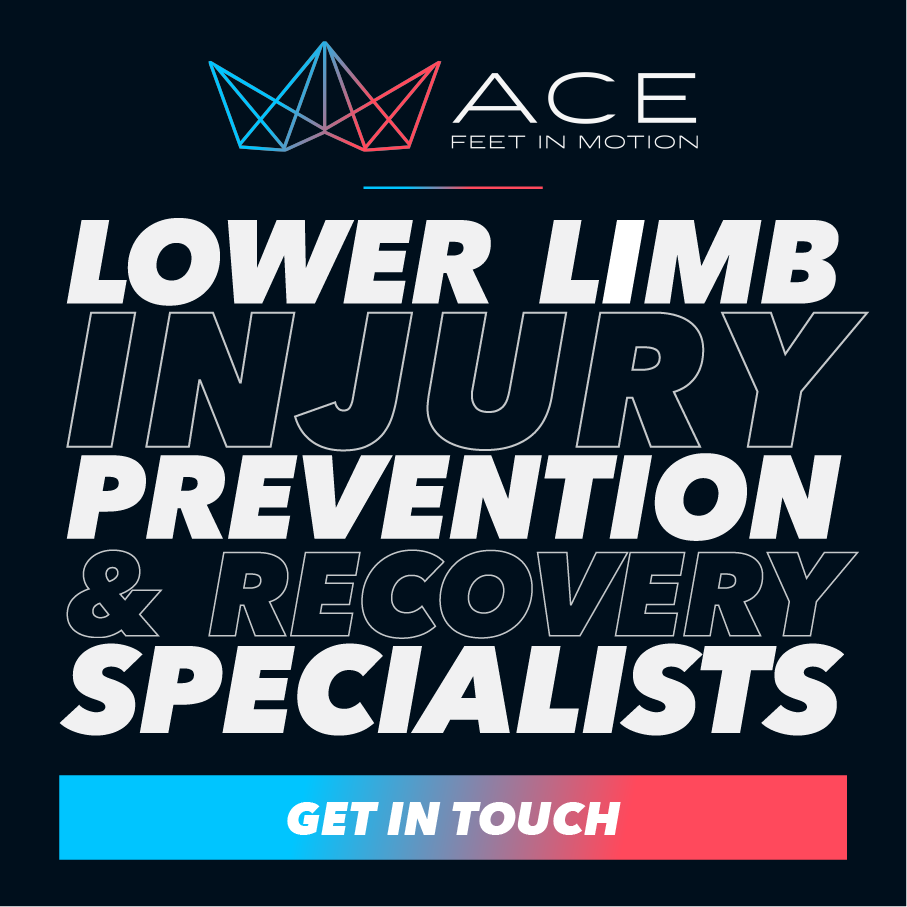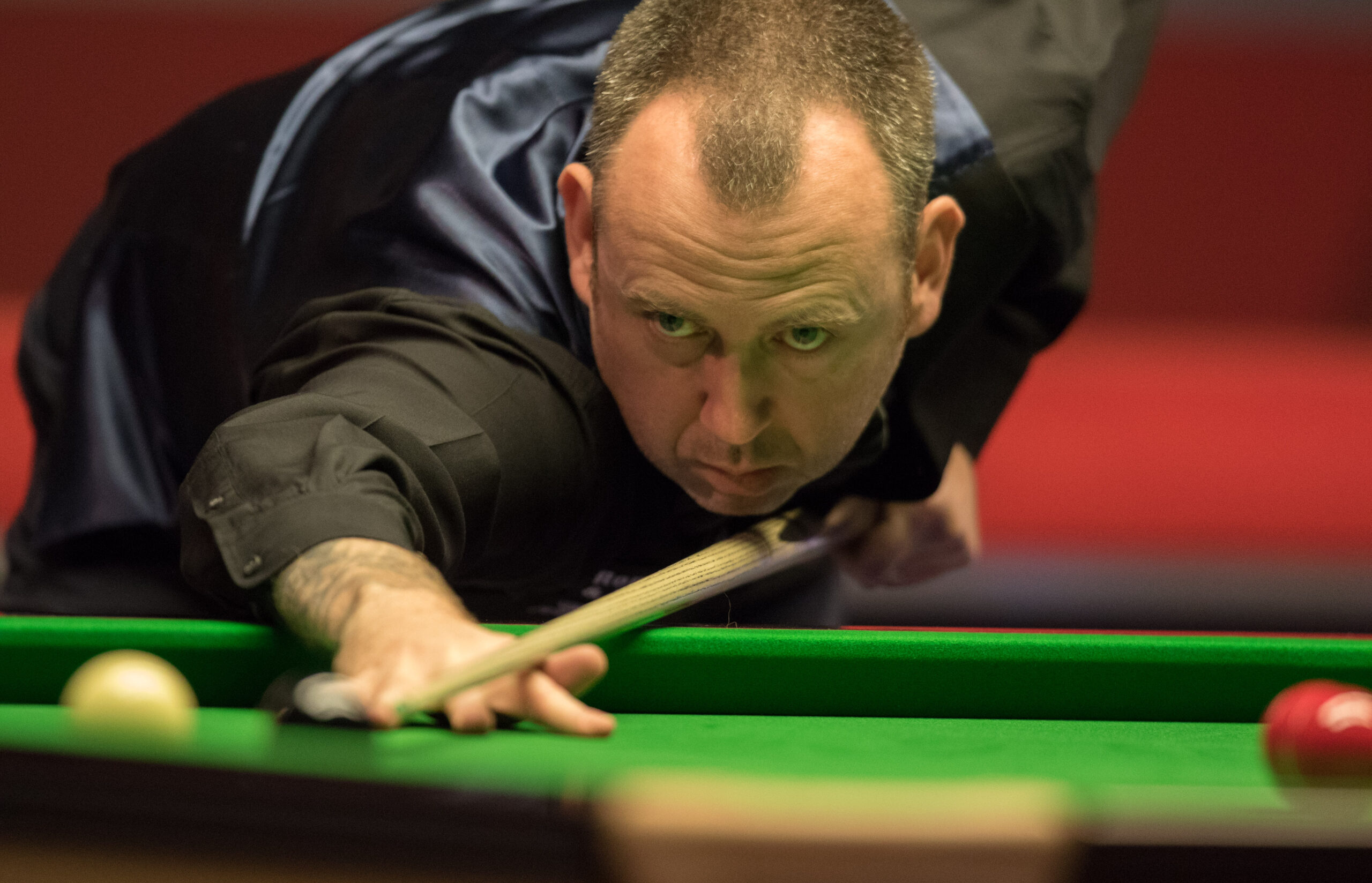Life On One Wheel: The Unique World Of Unicycle Hockey

Carwyn Harris
Welcome to the weird and wonderful world of Unicycle Hockey, a sport which has been around “since the early nineties”.
While the sport is bigger in mainland Europe and in countries like Japan and Australia, it also has a vibrant club scene in the UK.
While there are “only four active clubs” in the UK, Cardiff’s side has been going for 17 years.
Ben Tullis has been part of the club for most of that period, running the club for the last decade.
“I started playing about 1992-93 as I was learning to unicycle around that age,” says Tullis.
“I was living in Hastings at the time and there were probably 13 or 14 clubs in the UK, and we used to go around the country playing in various tournaments.
“Over the last 30 years or so the number of clubs has dropped, now there’s probably only four active clubs, whereas there were six at the start of Covid.
“From Cardiff, we’ve been to three European Championships, played for Wales, and in 2017 we came away with some silverware, coming second in the B league.
“Out of clubs in the UK, ours is probably the one that is doing the best in terms of recruiting new members, training them to ride unicycles, and getting people into the game.”
Unicycle Hockey Takes Commitment
The club has two main sessions, one for novices on a Sunday and another for more experienced “confident and competitive” players on a Wednesday.
“We teach people how to ride from absolute beginners, while that’s happening in the background, people who already play and already have some experiences are from playing hockey,” says Tullis.
“The majority of people who come to the club and try the sport are complete beginners.
“They may have no sporting experience in anything else, they have come because they’d like to learn to ride a unicycle, and we successfully get them interested in hockey.
“Occasionally, we will have someone who moves to Cardiff for university or work, or anything else and they are proficient unicyclists already.
“They may be jugglers. They may also be interested in circus skills; we then convert them from being just a unicyclist to a unicycle hockey player.”
Tullis says he has never met anyone who is not able to ride a unicycle, however, it does take commitment.
“Learning to ride a unicycle does take a commitment,” says Tullis.
“You know, it’s normally around 10 to 12 hours of independent practice.
“Getting on, falling off, getting on and falling off, before you can go reliably five metres or so.”
Community Sport
Practices and games are held at Cardiff’s House of Sport at the roller hockey rink.
“The venue is ideal for us with curved corners, Plexiglas up the sides, neither of which are essential but make things easier,” says Tullis.
“It’s a non-contact sport so there’s no need for padding or helmets although it would be wrong to say that people don’t fall over but we don’t mandate helmets especially for more experienced players.
“Generally, when you fall off a unicycle you walk out of it, step off, there’s nothing to get caught up in as you would with a bicycle.”
The sport has a reputation as one which has a strong community and family feel.
“Everyone is so supportive, both literally in giving someone an arm to hold onto until they are no longer needed and in terms of giving others the confidence to carry on,” says Tullis.
“One of the particularly nice things about the game is that because being able to unicycle is the only barrier to entry, the games are all mixed in terms of gender and age.
“We often have parents and children playing the same games, husbands and wives because you don’t get any particular benefit from being male or female, old or young, bulky or lithe.
“Both my children come along. They’re eight and 10 and both love it. My wife also plays but doesn’t have the bug the same way I do.
“It’s unusual in sports in that way. We had someone turn up the other night who’s a second-generation unicycle hockey player, his parents are both unicycle hockey players who recommended he come to join us.”
A sport for all
While playing on one wheel instead of a bicycle with two might seem inhibiting, Tullis says that it is rather the opposite.
“When you’re good at unicycling you can turn on a sixpence, it’s just an extension of your legs,” says Tullis.
“If you’re on a bicycle and want to stay stationary you can do a track stand for maybe 10 or 20 seconds but eventually, you’ll have to get back moving or get off.
“On a unicycle you don’t have that as it’s a completely fixed wheel, you do what’s called idling or hovering, cycling back and forward, which is useful for being in defence or in goal.
“When you want to turn you just throw your shoulders or hips into it and you can turn on the spot, a unicycle allows you to be extremely agile.
“I play bicycle polo as well. One session I had a go with my unicycle, and it was completely unfair. You’re so much more agile on a unicycle.”
Even within unicycle hockey itself there are a variety of abilities and skill sets which bring with them differing styles.
“We have one player who is a professional performer and able to unicycle across tightropes and balance things on his head,” says Tullis.
“He bunny hops out of tackles which is amazing to watch.
“We use ice hockey sticks, and the blade is very subtle allowing you to scoop, lift, and play things in the air.
“Also, we play with a tennis ball so it’s more of an aerial game and the ball is fairly bouncy, able to smash the ball down and get it to bounce up in the air.
“You can play the ball with your hand, head the ball, the only rule is you can’t score with your hand.”
Always Improving
Even for experienced players like Tullis there are skills to be honed and improved upon.
“Currently I’m working on my passing, getting the ball to where somebody’s going to be rather than behind them,” says Tullis.
“I’ve gotten a lot better the last couple of years at being able to weave around people, dribbling or pulling a dummy to jink past someone.
“Everyone’s working on particular skills they need to improve on. I wouldn’t say there’s a hardest skill, merely many elements and aspects you need to work on.”
If you want to read more pieces from Sportin Wales, why not read to our monthly magazine here or subscribe to the magazine and newsletter at https://sportin.wales/subscribe/.
You can also keep track of our pieces on our socials at @Sportin_Wales on X, Sportin Wales on Instagram and Facebook.




